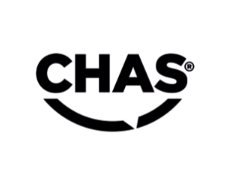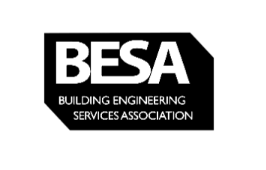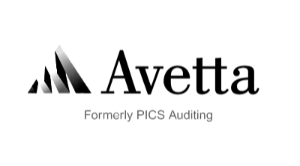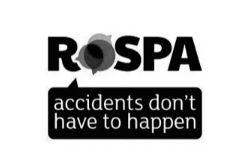phs Group has acquired Citron Hygiene UK - we’re here to support you. Read our customer FAQs and find our contact details here.
Healthcare waste and what to do with it – the essence of Health Technical Memorandum 07-01
Healthcare waste is a massive issue for many organisations such as hospitals, GP practices, dental surgeries, care homes, veterinary practices, and beyond. Management and disposal of healthcare waste is not straightforward, and is bound by regulations on all sorts of aspects such as separation of waste, handling, storage, etc.
The Health Technical Memorandum 07-01 (HTM 07-01) is a vital document for healthcare organisations in the UK, therefore. It provides comprehensive guidelines on the safe management of healthcare waste – outlining best practices for waste segregation, handling, storage, and disposal, ensuring that healthcare facilities maintain high standards of safety and sustainability.
HTM 07-01 also highlights the use of alternative treatment methods for items found in orange waste containers, which are less energy intensive compared to incineration and are used for handling infectious waste.
In this blog, we’ll guide you through all aspects of the latest HTM 07-01 update to help ensure your organisation is fully aligned with its obligations. We’ll cover HTM 07-01 best practices, as well as talk you through how phs can support you to stay on track.
The Importance of HTM 07-01 to healthcare organisations
HTM 07-01 is essential for healthcare organisations as it helps mitigate risks associated with healthcare waste, such as infection, contamination, and environmental harm. Compliance with HTM 07-01 ensures that healthcare providers:
· Protect patient and staff safety – proper waste management minimises the risk of infections and injuries caused by hazardous waste.
· Maintain environmental standards – ensures that waste is disposed of in a way that reduces environmental impact, including the reduction of carbon emissions, which benefits the environment and leads to cost savings.
· Maintain legal compliance – adhering to HTM 07-01 helps organisations comply with UK regulations and avoid legal penalties.
Healthcare workers play a crucial role in ensuring compliance with HTM 07-01, which is vital for their safety and that of patients.
What is HTM 07-01?
The Health Technical Memorandum 07-01 is a document that sets out the NHS waste management guidelines. The latest updated HTM 07-01 was published in 2023 and supersedes the previous edition released 10 years earlier – taking into account legislative changes and putting a stronger focus on strategic approaches, sustainability and workforce skill development.
HTM 07-01 provides a framework for handling waste in healthcare. It is not a legislative document but gives detailed guidance on following legal regulations for the management of healthcare waste. It covers all aspects from segregation and storage to transportation and disposal. Key elements include:
· Waste segregation – using colour-coded bags and containers to separate different types of waste at the point of origin. This practice is crucial for ensuring that each type of waste is handled and disposed of correctly.
· Storage – guidelines for the safe and secure storage of healthcare waste to prevent contamination and accidents.
· Disposal – recommendations for the disposal of different types of waste, including incineration and alternative treatments.
How to Implement HTM 07-01 guidelines in healthcare
The following key points of HTM 07-01 summarise what organisations must do in order to comply with legislation and regulations on waste management in healthcare:
Health and safety protocols are essential in minimizing risks of accidents and injuries within the healthcare environment. Proper training and risk management are crucial for maintaining a safe workplace.
Waste management responsibilities of pharmacists and pharmacy staff are vital in ensuring compliance. Effective management strategies and proper disposal practices are necessary to handle pharmaceutical waste responsibly.
1. Waste segregation
Implementing HTM 07-01 begins with effective waste segregation. Healthcare facilities must use the appropriate colour-coded bins and bags to separate waste types:
· Yellow bags – For infectious waste that requires incineration.
· Orange bags – For clinical waste that can be treated to render it safe before disposal.
· Tiger bags (yellow with black stripes) – For offensive waste, which is non-infectious but unpleasant.
2. Staff training
Training is crucial for compliance with HTM 07-01. Staff should be trained to understand the importance of waste segregation, the use of colour-coded containers, and the procedures for handling different types of waste. Emphasizing waste management knowledge in staff training is essential for fostering a culture of awareness and ensuring effective waste management practices.
3. Regular audits
Conducting regular audits helps ensure ongoing compliance with HTM 07-01. Audits should check that waste is being correctly segregated, stored, and disposed of according to the guidelines.
4. Documentation
Maintain thorough documentation of waste management practices. This includes records of waste audits, staff training sessions, and waste disposal logs.
HTM 07-01 best practices
Adopting HTM 07-01 best practices involves:
· Routine inspections – regularly inspect waste management practices to ensure they meet HTM 07-01 standards.
· Continuous improvement – update and improve waste management protocols based on audit findings and changes in regulations.
· Stakeholder engagement – engage all stakeholders, including staff, patients, and waste disposal contractors, in waste management practices.
· Improved waste management efficiency – ensure responsible waste management practices by adhering to guidelines like HTM 07-01, which enhances daily operations and reduces risks associated with disposing of pharmaceutical materials.
· Waste management strategies – emphasize the importance of structured frameworks like HTM 07-01 in continuous improvement and stakeholder engagement to manage waste effectively, reducing financial and environmental burdens.
NHS waste management guidelines
The NHS waste management guidelines, including HTM 07-01, are designed to ensure that healthcare waste is managed safely and efficiently. These guidelines help reduce the risk of infection and contamination, ensure legal compliance, and promote environmental sustainability.
The NHS clinical waste strategy outlines objectives related to waste segregation and minimizing environmental impact, aiming to improve overall waste management practices.
HTM 07-01 sustainable waste management practices
Sustainable waste management is a key component of HTM 07-01. This includes:
· Reducing waste – implementing measures to reduce the amount of waste generated.
· Recycling and reuse – promoting recycling and reuse wherever possible to minimise waste sent to landfill or incineration.
· Energy recovery – using waste-to-energy technologies to convert healthcare waste into usable energy.
· Safe and sustainable management – emphasizing the environmental advantages of proper waste disposal, which can lead to cost savings, promote safer working practices, and minimize carbon emissions associated with waste management.
· Reducing environmental burden – highlighting the importance of responsible waste handling to reduce the financial and environmental burden caused by improper waste treatment, and the need for structured frameworks and staff training to create awareness and compliance.
How phs can help
phs provides a range of services to help healthcare organisations comply with HTM 07-01 and maintain high standards of waste management. Our services are tailored to meet the needs of healthcare organisations These include:
· Waste management solutions – including clinical waste disposal
phs provides comprehensive waste management services, including waste collection, segregation, and disposal. This includes safe and compliant disposal of clinical waste, such as sharps and infectious waste. This service ensures that all waste is handled and disposed of according to HTM 07-01 guidelines, reducing the risk of infection and contamination. By implementing these effective waste management strategies, phs helps healthcare organisations become a responsible healthcare provider.
· Documented compliance
We provide detailed documentation to support compliance with HTM 07-01 and other regulatory requirements. This includes waste transfer notes, audit reports, and training records, ensuring that your organisation can always demonstrate compliance.
· Sustainable waste management
phs promotes sustainable practices by encouraging waste reduction, recycling, and energy recovery. Their services include the collection and processing of recyclable materials and the conversion of healthcare waste into energy, helping organisations minimise their environmental impact.
· Staff training
Training programmes to ensure that staff are knowledgeable about HTM 07-01 guidelines and understand HTM 07-01 sustainable waste management practices.
· Regular audits and inspections
Conducting regular audits and inspections to ensure ongoing compliance with HTM 07-01.
By following these HTM 07-01 sustainable waste management practices as well as utilising the services offered by phs, healthcare organisations can ensure safe, straightforward, compliant, and sustainable waste management practices.
For more information on how phs can help your organisation comply with HTM 07-01 and improve waste management practices, get in touch.


































